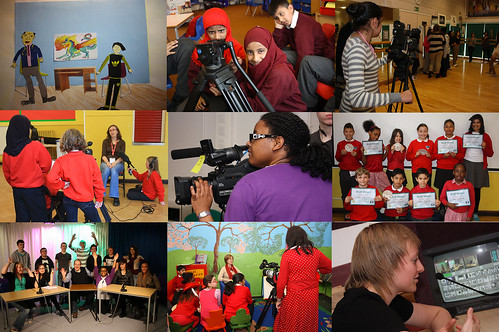The Winter Solstice has become a point in the year for me to reflect on my work and learning journey on this little blog. Before I switch off my laptop until January, here are a few musings. Grab a cuppa and enjoy!
My work this year has had an almost exclusive focus on local heritage. 2018 marked the Centenary of the Armistice and the passing of the Representation of the People Act, so there has been plenty happening to mark both.
In February I was part of organising a commemorative event with the People’s Heritage Co-operative, The Active Wellbeing Society and Birmingham City Council. The 1918 legislation extended the franchise to thousands of working class men – and for the first time a significant proportion of women. I was invited to ask a question (effectively making a statement) to a full meeting of Birmingham City Council. The significance of standing in the Council Chamber only a stone’s throw away from where my Great Grandmother lived in 1918 wasn’t lost on me.

My Great Grandmother wasn’t able to vote in 1928. Like so many other working class women she wasn’t recognised as a citizen until 1928. She spent a significant part of her married life raising eight children in poor housing in Hockley. I’m adamant that we shouldn’t be too self-congratulatory as a society when it comes to social progress and so I’ve spent much of this year pulling together a project to ask what happened beyond 1918.
‘Represent’ has been granted £36,100 by the Heritage Lottery Fund and I’m very pleased to share that I will be working as the Project Manager over the next 18 months. We will be working to explore Birmingham’s politics in the period following WW1 and the passing of the Representation of the People Act. We’re focusing on activism in relation to women as activists and housing campaigns. I’m really privileged to be working alongside a fantastic team of researchers and historians and we’ll be recruiting new members of the team in the new year – if you are a designer, evaluator or artist then keep a lookout! You can read more over on the People’s Heritage Co-operative website where you can also sign up to our mailing list for occasional updates. We really don’t know what we will uncover in the archives at this stage, so it’s all very exciting!
Other heritage projects this year have included some Project Co-ordination and delivery of creative workshops with people experiencing dementia for Living Memory; creating a film for Birmingham Friends of the Earth to mark their 40th Anniversary using archive images and oral histories; an ongoing memories project with elders for The Lichfield Festival and work with pupils at Paganel Primary School for Fields of Remembrance to examine how WW1 impacted on their neighbourhood.

I’ve been continuing my learning journey this year through attending a variety of ArtsConnectWM events and courses, including ‘Preparing for Work in Formal Education’ and the always inspiring Digital Pick and Mix event. I’ve also been exploring Podcasting with an online MOOC, considering curation with Friction Arts, learning about the ‘StoryLab’ work happening at Birmingham Museum and Art Gallery and getting involved in a new heritage focused Research Cluster at Birmingham City University.
A real highlight has been working with the absolutely wonderful team at Geese Theatre to bring creative film making into two different secure mental health hospitals. Geese marked their 30th Anniversary this year and the years of experience are really evident in their practice. I’ve learnt so much from Geese and from participants who have thrown themselves into projects. We’ve created some fantastic work which is now being enjoyed by participants and being used as a resource by staff throughout Elysium Healthcare.

In 2019 things will continue to take a dramatic turn with another film planned with Geese Theatre and some work with Big Brum Theatre.
Over the past month I have been working in role as a ‘Community Knowledge Officer’ for Balsall Heath, helping Balsall Heath Forum to create an online directory and events listing site to be used as a community resource by local organisations and residents. I’ve been getting lost in WordPress plugins, themes and widgets (quite a nice place to be!), but eventually it’s taking shape. I will be employed until April, liaising with local partners to develop the resource further. Do add any news, events or organisation details to the site if you have details to add – you can view the site at www.neighbourhoodnewsonline.com.

I’ve ended the year on a real high. Last night I came together with my wonderful coworkers from The Transfer co-working space for a few pre-Christmas drinks. It’s a lovely community of people who support one another through the trials and tribulations of freelance work and remote working. The board of Trustees from the Old Print Works work so hard to make the space cosy and welcoming and I’m so grateful for the shared lunches and camaraderie.
I wanted to end this post with an image from the ‘March of the Women’ event that I documented a few weeks ago. Balsall Heath and Moseley Women’s Institute wanted to mark the Centenary of the first women casting their votes in a General Election. They came together to sing a song written by a Suffragette alongside a series of songs written by the group and by women migrants.
It was such an uplifting event and a reminder of the dynamism and optimism in my neighbourhood. When we lift one another up then fantastic things can happen. More of that in 2019 please – the world can’t get enough of it.






